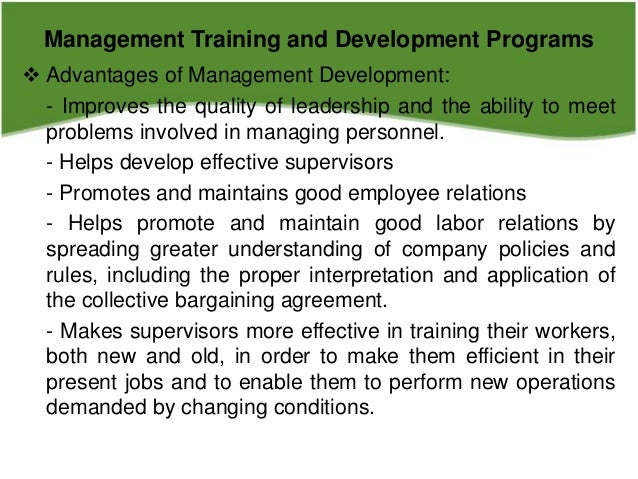The MRP Labor Management Employee Relations (LMER) Branch provides a full range of LMER services for APHIS, FAS, and AMS. The Branch evaluates management and human resources policies in order to determine their labor relations impact and/or implementing requirement; determines the need for and develops APHIS and AMS policies, practices, and procedures related to the conduct of labor. Before you can register for any DCPAS Training Courses, you must registered your CAC Card with access to DCPAS Training Applicaiton using DCPAS E-Authentication System. You do not need to wait 24 hour for approval. Once your CAC Card is registered, you can start registering for courses.
- Labor Law Training For Supervisors
- Labor Relations Training California
- Labor Relations Training For Supervisors Resume
- Labor Relations Training For Supervisors Training
- Cornell Labor Relations Training

Attorneys, L/ER specialists, union representatives and arbitrators have a lot they need to understand about the current and pending policy changes with permissive bargaining in federal labor unions. FELTG courses to help the practitioner safely – and legally- navigate this complex terrain while providing fundamental understanding and practical application to the daily requirements of those employed in this field.
LR-1: Fundamentals of Federal Labor Relations: Nuts & Bolts (1-2 days)
Course Topics: An overview of the Federal Service Labor-Management Relations Statute; the Federal labor Relations Authority (FLRA); fundamental employee, union, and management rights; Weingarten meetings; a bargaining unit employee’s right to be represented by the union in certain meetings.
LR-2: Handling Grievances & Arbitration (1 day)
Course Topics: Invoking arbitration under the collective bargaining agreement; the arbitration process; selecting an arbitrator; rules of evidence; how government arbitration is different from private sector arbitration; educating the arbitrator.
LR-3: Navigating Negotiability Issues (1 day)
Course Topics: FLRA process and procedures; intersection of grievances, MSPB appeals, and EEO complaints; what subjects must be bargained; what subjects may and may not be bargained; impact and implementation bargaining; bringing the bargaining process to closure.
LR-4: Effective Negotiation Techniques & Strategies (1-2 days)
Course Topics: Management rights; negotiating impact and implementation; difficult bargaining topics; management-union relationships; word choices; choosing your battles.
LR-5: Labor Relations Meetings, Official Time & ULPs (1 day)
Course Topics: Agency obligations; Weingarten and Brookhaven meetings; formal discussions; official time – what is covered by law and what is bargained; unfair labor practices (ULP) procedures; common legal missteps; practical strategies.
LR-6: Legal Writing Skills for LR Practitioners (1 day)
Course Topics: Legal writing overview; writing a Memorandum of Understanding; pre-ULP writing considerations; drafting arguments under contract interpretation; persuasive legal writing.
- Categories
- Tags Anchorage AK Atlanta boulder city nv chicago-il Dallas TX Denver CO Honolulu HI Las Vegas New Orleans Norfolk VA okinawa Oklahoma City phoenix-az Portland OR puerto rico San Diego San Francisco CA seattle-wa Washington DC we webinar

Instructor
William Wiley, Barbara Haga
Course Description
Absence due to illness has changed the landscape in dealing with federal workplace issues. Problems arise when employees are absent – let alone the huge amounts of leave entitlements tied to family member medical conditions.
Administering sick leave can be complicated, and proper documentation is critical. The Family & Medical Leave Act adds an additional layer of complexity to these illness-related absences. When can you require medical examinations? When can you take action on excessive absences?
If you need more information on absence related to illness so you are able to answer those tough questions on sick leave and FMLA – or if you want to ensure that the adverse action case you assemble will withstand the scrutiny of the MSPB – then this webinar series is custom-made for you.
While the near future of the Merit Systems Protection Board remains uncertain, FELTG is staying on top of the situation and will provide attendees with the most up-to-date information they need to know.
Instructors Deborah Hopkins, William Wiley, and Barbara Haga will guide you through these thorny issues. Register for any or all of the sessions.
- Session 1 – Sick Leave, Part I (October 16)
- Earning and accumulation
- Authorized uses of sick leave
- Family care sick leave – documentation and limits
- Advance sick leave
- Session 2 – Sick Leave, Part II (October 30)
- Notice requirements
- Definition of “serious health condition”
- Substitution of paid leave for FMLA LWOP
- Medical certification – what is required and what needs to be in it
- Sick leave abuse
- Medical examinations
- Taking action on sick leave-related absences
- Session 3 – Understanding FMLA (November 13)
- Basic entitlement
- Notice requirements
- FMLA Medical certification requirements
- Discipline and FMLA – excessive absence, falsified information, failure to comply with notice requirements, last chance agreements
You’ll have the chance to ask your questions, and get them answered in real time, during each of these 90-minute sessions. Register your site today.
Price
Early Bird Tuition: $275 per webinar per site (registration submitted by October 7)
Labor Law Training For Supervisors
Standard Tuition: $305 per webinar per site (registration submitted October 8 or later)
Register for all three webinars by October 7 and pay only $795.
Add a teleworker for $35 per webinar, in addition to a main site registration, if space permits.
President Trump issued three executive orders last year that had a significant impact on federal labor relations. With orders regarding official time, negotiation timeframes, and union responsibilities to pay for things they never had to pay for before, this was the biggest change to rock the world of federal labor relations in years. Three months later, a D.C. District Court Court judge enjoined several parts of the EOs, stating they were illegal. The White House then appealed.. And then this summer, that District Court ruling was overturned by an Appeals Court. The Executive Orders are no longer enjoined.
Where do things stand today? Join FELTG for FLRA Law Week and we’ll bring you up to speed on what you can, cannot and should do under these EOs.
But that’s not all. Every labor attorney, labor relations specialist, and union representative in government needs to have both a firm foundation in the historical perspective and precedence of FLRA decisions, as well as a strategy for taking advantage of any new approaches that are coming out of an ever-evolving Federal Labor Relations Authority. This training week, updated to reflect the current state of the law, does just that — and with instructors who spent a combined 38 years working at the FLRA, there’s no other federal labor relations training that will give you this type of inside perspective. You won’t want to miss it.
The program runs 8:30 – 4:00 each day.
Instructors
Ann Boehm, Joe Schimansky
Daily Agenda
Monday
Basic Management and Employee Rights: An overview of the Federal Service Labor-Management Relations Statute; the current status of Executive Orders 13836 and 13837; fundamental employee, union, and management rights; bargaining unit definition; the union organizer’s role; information requests; official time.
Tuesday
Labor Relations Meetings and Bargaining: More on official time; formal discussions; union representative rights; the collective bargaining process; the three categories of bargaining: mandatory, permissive, and prohibited.
Wednesday
Unfair Labor Practices and Negotiability: What happens when the FLRA comes knocking; the anatomy of an Unfair Labor Practice; the Federal Services Impasse Panel; negotiability appeals.
Thursday
Redress Alternatives and the Psychology of Bargaining: The interplay among grievances, appeals, MSPB, and EEOC; exceptions to arbitration awards; selecting a bargaining strategy; interest based bargaining as compared to hard ball bargaining,
Labor Relations Training California
Friday
Understanding Arbitration Issues: The arbitration process overview; binding the arbitrator; how federal government arbitration is different from private sector arbitration and appeals; educating the arbitrator.
Pricing
Most people attend the full training week, but you may opt out of any days you don’t plan to attend.
Early Bird Tuition (register by October 7):
- 5 days = $2170
- 4 days = $1780
- 3 days = $1370
- 2 days = $970
- 1 day = $530
Standard Tuition (register October 8 – October 25):
- 5 days = $2270
- 4 days = $1880
- 3 days = $1470
- 2 days = $1070
- 1 day = $630
Metro, Parking, Directions
Metro: The International Student House (1825 R Street NW) is located in convenient proximity to the Red Line. Exit Metro at the Dupont Circle station and proceed to the Q Street/North exit. Head north (you will come off the escalator facing north; if you use the elevator take a left after exiting) on Connecticut Avenue to R Street NW (approximately one block). Turn right onto R Street NW. Cross 19th Street NW and the International Student House will be on the left side of the street approximately halfway down the block. If you reach the Bikeshare dock, you’ve gone too far. Approximate walk time: 7-10 minutes.
Parking: Street parking is metered and is limited to two hours, unless you have a Washington, DC, Zone 2 parking pass. The closest parking garage is at 11 Dupont Circle, approximately two blocks from the International Student House (1825 R Street NW). Approximate walk time: 5 -7 minutes.
From the Carlyle Hotel: After exiting the Carlyle Hotel, turn left. At the first intersection, R Street NW, turn right. Proceed approximately one block. The International Student House (1825 R Street NW) will be on your right, just past the Bikeshare dock. Approximate walk time: 4-6 minutes.
Labor Relations Training For Supervisors Resume
Cancellation and No-show Policy for Registered Participants: Cancellations made after the cancel date on the registration form will not be refunded or given credit toward future courses. Pre-paid training will not be refunded, and will not be given credit toward another course after the cancellation date on the registration form. No-shows will not be refunded or given credit toward future courses.